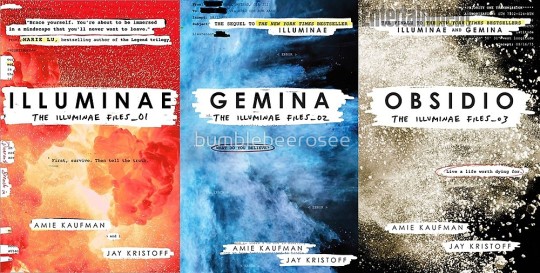#but the sheer amount of times ive seen fans quote it makes me want to get to the bottom of it
Text
In the last two years, I’ve encountered the quote “Ringo’s not even the best drummer in the Beatles” attributed to John more times than I can count.
It always hits my brain as wrong not just because I’m nothing if not a Ringo defender but because John knew how freakin lucky they were to have Ringo. If John did say it, it was almost surely intended as a joke and not one to be repeated by Ringo detractors as any kind of evidence of his skills 60 years later.
Fab Four Archivist says it never happened:
youtube
There are fans in the comments who swear they’ve seen video of the 1966 New York press conference where John says this. I’ve watched what I thought was the complete presser and do not remember it. It may be a case of the meme writing over memories.
Does anyone remember actually seeing this clip anywhere?
#source questions#ive never seen it sourced its almost always repeated in comments#but the sheer amount of times ive seen fans quote it makes me want to get to the bottom of it#fab four archivist#john and ringo#my text#bug mysteries#Youtube#bug lore
15 notes
·
View notes
Text
Kaufman and Kristoff’s “The Illuminae Files” pt. I
Hi there! This is my first attempt at blogging about books I’ve read for leisure. I was inspired greatly by the bookstagram and booktube communities in Instagram and YouTube, respectively, and while I enjoy seeing content from both platforms, I feel like there’s something else I want to see from book bloggers that’s currently not present in the content trend today. I’ve seen a few bloggers here and there whose content I really liked (a personal favorite is booktuber @LilyCReads), but I guess it’s high time I shared my personal sentiments and commentaries myself. I still don’t know where I want to take this, but starting somewhere is better than nothing amirite. Anyway, here goes.
Note: This is a spoiler-free review. Part II, which I will link here as soon as I’ve posted it, will most likely be full of spoilers because I will talk about the key themes and important quotes from the books. Beware and proceed with caution! :-)
Title: The Illuminae Files (trilogy); Illuminae (Book 1), Gemina (Book 2), and Obsidio (Book 3)
Authors: Amie Kaufman and Jay Kristoff
Genre: science fiction, military space opera, epistolary
Rating: 5/5 stars

Story Time! ✨
Before I dive right into the books, let me tell you guys a bit of a backstory. I’ve always enjoyed science fiction, especially space opera (a close contender is steampunk). Mind you, though, I wasn’t really part of the Star Wars crowd (I was more of a Harry Potter pre-teen) as I was growing up, so I can’t really point to the franchise as the origin of my interest. No, I’d say I started getting interested in the science part before I discovered that it could be fused with fiction. I loved encyclopedias and the annual almanacs when I was a kid, and up to this day it still baffles me a bit that I was that kind of kid before books and (eventually) the humanities dragged me into their fold. I was deeply fascinated by the heavenly bodies, and up until I realized I had acrophobia (fear of heights), I even wanted to be an astronaut. My venture into science fiction and its subgenres was a little less scholarly. I’m not ashamed to share that I fell in love with space opera through fan fiction, specifically an old X-Men fan fiction. That masterpiece really changed my reading experience.
It was my youngest sister, a bonafide bookstagram lurker, who introduced the Illuminae Files trilogy to me. All she said was, “It’s an epistolary. I think you’d like it,” and I was already purchasing the second book (she already bought the first one). This is where it gets kinda funny, because originally, I read Book 2 (Gemina) first before I picked up Book 1 again this summer. I read the words “...breaking up with her boyfriend” in the synopsis and I instantly got turned off haha! I easily dismissed Illuminae because I thought it was just another typical YA love story packaged differently (but ultimately still the same formula), and I was just so exhausted with the same old variations. For the record, I was wrong, okay. But anyway, my sister assured me that I wouldn’t miss much if I start withGemina (which, totally false) and that the spoilers were negligible (only because when I got “spoiled” in Gemina, I didn’t realize at the time the significance of what I found out ahead, and when I picked up Illuminae, I already forgot most of what happened in Gemina). [Story Time: End]
Now that story time is over, I just wanna point out that after typing this whole chunk of word vomit, I realized that I’m already so chatty and I haven’t even started on the books themselves! I swear, I’m only letting this run as long as this because it’s the first one, and I have a lot of behind-the-scenes anecdotes that I really want to share. I hope I don’t drive y’all away hahaha, so let’s just jump into the “review” part.

The Gist ✨
The year is 2575, half a millenium ahead of what constitutes as “today”. Human civilization has moved past the uncertainty of space explorations, of the search for the “second” Earth. Distant corners of the universe? Not so distant anymore. Space travel that spans light years? Now simply one “jump” away. For all the fancy technological advancements that humankind has achieved, they still aren’t beyond mass murder for the sake of money and resources. At least that’s what I gathered when megacorporation BeiTech Industries brutally massacred the citizens of a small far-flung colony called Kerenza IV, where there was a ongoing illegal mining of hermium, a precious resource in this universe. The trilogy revolves around the protagonists, victims and survivors of BeiTech’s brutal invasion, and their search for justice while fighting for their lives in the yawning emptiness of space. There are all sorts of characters within each book, including a Skynet AI, and all sorts of trouble as well.

Reactions 💖
Stylistics. As I’ve mentioned above, all three books are hashed out through a collection of files, chat logs, and video transcriptions to name a few. And duuuuuuude. Kaufman and Kristoff really did an incredible job with the lay-out of Illuminae Files--hats off to their entire team, there is no denying the genius behind their concept of what an epistolary is. It was exciting to dig into the books to examine every detail and every Easter egg that they left in each well-planned page. Although, I’ll be honest here, there were a few times that I really got confused and lost in the story--not in the sense that I was intensely absorbed with what was happening but rather, because there were a lot of details and clues to take in. It was easy to be overwhelmed by everything that was happening. Add the fact that there were events happening simultaneously, and were described in completely different media (this will make much more sense once you pick up the first book). I don’t consider it an entirely negative thing because the confusion really helped in blindsiding me from most of the major plot twists; in fact, I’d say I enjoyed the story more when my theories were debunked by the more awesome plot twists.
World-building and plot. Speaking of plot twists: the plot had some really well-placed surprises and shocks. I love that the romantic scenes were not distastefully added. In fact, instead of stealing the limelight from the major conflict as well as the science-and-technology “vibe” of the story, the romance further heightened the stakes that the protagonists were risking with every decision and plan they concoct.
The authors did not give us 600-pages of long-winding narratives (per book) and chunks of justified text divided into chapters--no. They gave their readers a feast of visual exercise and yet, using less words (than a standard 300-page novel) and hardly a clear-cut linear plot progression, they raised a lot of important questions that we could use some time to ponder on (more about these in Part II--beware of spoilers, though!). What I always look for in science fiction (and fantasy as well, for that matter) is a well-executed world-building. It doesn’t matter if the premise is unique if the author did not manage to back the novelty of their idea; sometimes, if the world-building is particularly lacking, it really puts me off from the plot itself. In the trilogy, it wasn’t a problem at all, which helped to make me more absorbed with all the adrenaline-infused twists upon twists in the story.
I also have to commend how well the authors incited reactions from their readers--at least in my reading experience. One particular conflict in Illuminae really gave me goosebumps and sent a chill down my spine (won’t elaborate haha you’ll know if you’ve read it!!). Ugh, remembering it as I type this has me shivering involuntarily again. Those were some real creepy scenes, I tell you.
Characters. Most of the protagonists (but not all) paired up in different points of the story, so it’s easy to view them as such: couples. I don’t think I hated any off the them, even with my initial avoidance in reading Illuminae because of Kady and Ezra’s established relationship; in fact, the romance between all of them turned out to be not overbearing at all. Having said that, I think it’s a great disservice to each character, especially the couples, to view them only within the confines of their relationship dynamics. Amie Kaufman and Jay Kristoff both did a great job in adding layers upon layers of character development of the protagonists; furthermore, they were not stingy in adding characters and giving them actual personalities, and even though at certain times the sheer amount of characters got really confusing, in the end I consider it a plus on their genius and detail-oriented world-building. These two did not hold back in conceptualizing and planning. They were good at deliberately leaving out certain information, that’s true, and they got me to believe that nothing was amiss--only to exclaim “oh shit…” when things finally fall into place.
On the other side of the spectrum, BeiTech’s foot soldiers were ruthless and machine-like, and performed well as villains; however, what I loved about Illuminae Files are the details that the authors added--seemingly inconsequential details that will make you pause for a bit and remember that these brutal murderers are just as human as the protagonists, that while it’s easy to view them as merely “BeiTech”, there are still individuals behind the uniforms and high-calibre assault weapons. These details will lead you to the thought that both villains and heroes experience the same spectrum of human emotions, and it is jarring and terrifying to be reminded that only a thin line divides the two “sides”.
Anyway, this is where I’ll end Part I.
Watch out for Part II soon, which I will link below as soon as I’ve posted it.
Wow. So that was a pretty intense word vomit. Apologies for being so chatty, and if you managed to read this until the very end, thank you so much! I’d love to know what your thoughts are, if you’ve read the trilogy or if you’re planning to), etc. Let me know if you liked this type of in-depth (read: intense and overboard) review or if you hated it haha! Leave a comment or hit my ask box and I’ll be happy to reply! Part II will be up soon. See you! <3
Photo credits:
Book covers | bumblebeerosee on Redbubble
Space | Jeremy Thomas on Unsplash
Space (2) | Max McKinnon on Unsplash
#tricialucido#feature book review#illuminae files#amie kaufman#jay kristoff#science fiction#space opera#epistolary
0 notes